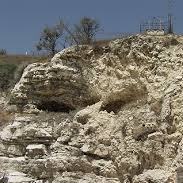Every Tuesday morning a small group of women gathers in our church library to pray. We try to take God at his word: that he hears us, acts on our requests, and has the power to change the lives and circumstances we pray about.
As we sit around an oval table each week, I sometimes think about God’s perspective. Though we believe he’s near, we also know he’s watching from his high position in the heavenlies. He sees us spreading out our prayer lists and knows we’re hoping he’ll do spectacular things in the lives of those we’re about to pray for.
 But he sees something else, too: the blessings he has prepared for those of us who assemble to pray.
But he sees something else, too: the blessings he has prepared for those of us who assemble to pray.
We don’t ask for them, but our generous God has them wrapped and ready for our little group every single week. It might be an unusual prayer spoken over someone who is particularly precious to one of us. Or one of our Scripture cards might do something powerful as it’s read aloud.* Or it might be a direct word from him plunked into the heart of one of us during moments of silence between requests. Or, like today, it might be an insight shared from one woman to the rest of us.
The requests that come to us include people who desire reconciliation with someone else. This morning as we talked about forgiveness, we chose verses to pray over those people. And then we spent a few minutes talking about sins of the mind and how insidious they are, how difficult to route out.
That’s when God’s gift of new understanding came in a statement made by one of the ladies: “Why do you think Jesus died on a hill that looked like a skull?”
 I’d never given much thought to the name of the place where Jesus died and what it meant: Golgotha (“place of the skull,” John 19:17). Though it’s named for its resemblance to a skull, might it include a warning to be especially vigilant to guard our minds against sin? After all, the grey matter inside our skulls is where sin-battles rage. Whether we’re making a yes-or-no decision to do something we know is wrong, or are wrestling with sins already committed that need forgiving, it’s all mental torment.
I’d never given much thought to the name of the place where Jesus died and what it meant: Golgotha (“place of the skull,” John 19:17). Though it’s named for its resemblance to a skull, might it include a warning to be especially vigilant to guard our minds against sin? After all, the grey matter inside our skulls is where sin-battles rage. Whether we’re making a yes-or-no decision to do something we know is wrong, or are wrestling with sins already committed that need forgiving, it’s all mental torment.
If we learn to attack evil at its starting point, in our heads, we have a much better chance of living victorious Christian lives. And today, as I understood the dramatic picture-link between “Golgotha” and the sins inside my skull (for which Christ died), I knew our generous God had given us yet another gift during our prayer time, this one an intensely practical one.
“Be transformed by the renewal of your mind…” (Romans 12:2)

